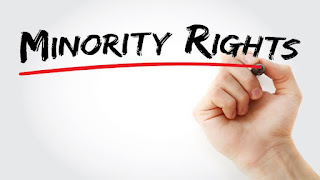Meditation is a practice that has been used for centuries to promote relaxation, mindfulness, and mental clarity. In recent years, there has been a growing interest in the power of meditation and its potential to enhance overall well-being and happiness. Research has shown that regular meditation practice can have a profound impact on both physical and mental health, leading to improved focus, reduced stress levels, increased self-awareness, and a greater sense of inner peace.
One of the key benefits of meditation is its ability to promote relaxation and reduce stress. By focusing your attention on the present moment and letting go of negative thoughts and distractions, meditation can help calm the mind and induce a state of deep relaxation. This can lead to a reduction in stress hormones, such as cortisol, and a decrease in feelings of anxiety and tension.
Another powerful aspect of meditation is its ability to increase self-awareness and improve focus. Through meditation, you learn to observe your thoughts and emotions without judgment, allowing you to gain a deeper understanding of yourself and your inner workings. This increased self-awareness can help you identify and let go of negative thought patterns and beliefs that may be holding you back from experiencing true happiness and fulfillment.
In addition to relaxation and self-awareness, meditation also has the potential to enhance overall physical health. Studies have shown that regular meditation practice can lower blood pressure, boost the immune system, and improve sleep quality. By reducing stress and promoting relaxation, meditation can have a positive impact on the body's natural healing processes and contribute to a healthier, happier life.
If you're interested in incorporating meditation into your daily routine, there are many different techniques and styles to choose from. Whether you prefer guided meditation, mantra meditation, or mindfulness meditation, it's important to find a practice that resonates with you and fits into your lifestyle. Starting with just a few minutes of meditation each day and gradually increasing the duration can help you establish a consistent practice and experience the full benefits of this powerful tool.
In conclusion, meditation is a powerful practice that can have a profound impact on your overall well-being and happiness. By promoting relaxation, improving self-awareness, and enhancing physical health, meditation can help you cultivate a calm and focused mind, leading to a more fulfilled and joyful life. So why wait? Start incorporating meditation into your daily routine and discover the power it has to transform your life.
Meditation is a powerful tool that can transform your life and lead to lasting happiness. Through the practice of meditation, you can develop a deep sense of inner peace and calm, cultivate mindfulness and self-awareness, and enhance your overall well-being.
Meditation has been practiced for thousands of years and has been proven to have numerous benefits for both the mind and body. Research has shown that regular meditation can reduce stress and anxiety, improve focus and concentration, enhance creativity and problem-solving skills, and even boost immune function.
One of the key elements of meditation is the practice of mindfulness, which involves paying attention to the present moment without judgment. By cultivating mindfulness, you can become more aware of your thoughts, emotions, and physical sensations, allowing you to better manage stress, improve relationships, and make wiser choices in all aspects of your life.
To start incorporating meditation into your daily routine, find a quiet and comfortable space where you can sit or lie down. Close your eyes and take a few deep breaths, allowing yourself to relax. Focus your attention on your breath, noticing the sensation of each inhale and exhale. Whenever your mind wanders, simply acknowledge the thought and gently bring your attention back to your breath.
It's important to remember that meditation is a practice, and like any skill, it takes time and commitment to develop. Start with just a few minutes of meditation each day and gradually increase the duration as you become more comfortable. Eventually, you may find that you can incorporate meditation into other activities, such as walking or eating.
By making meditation a regular part of your life, you can tap into its transformative power and experience greater happiness, clarity, and overall well-being. So why not start today? Take a few moments to sit quietly, close your eyes, and discover the amazing benefits of meditation for yourself.




